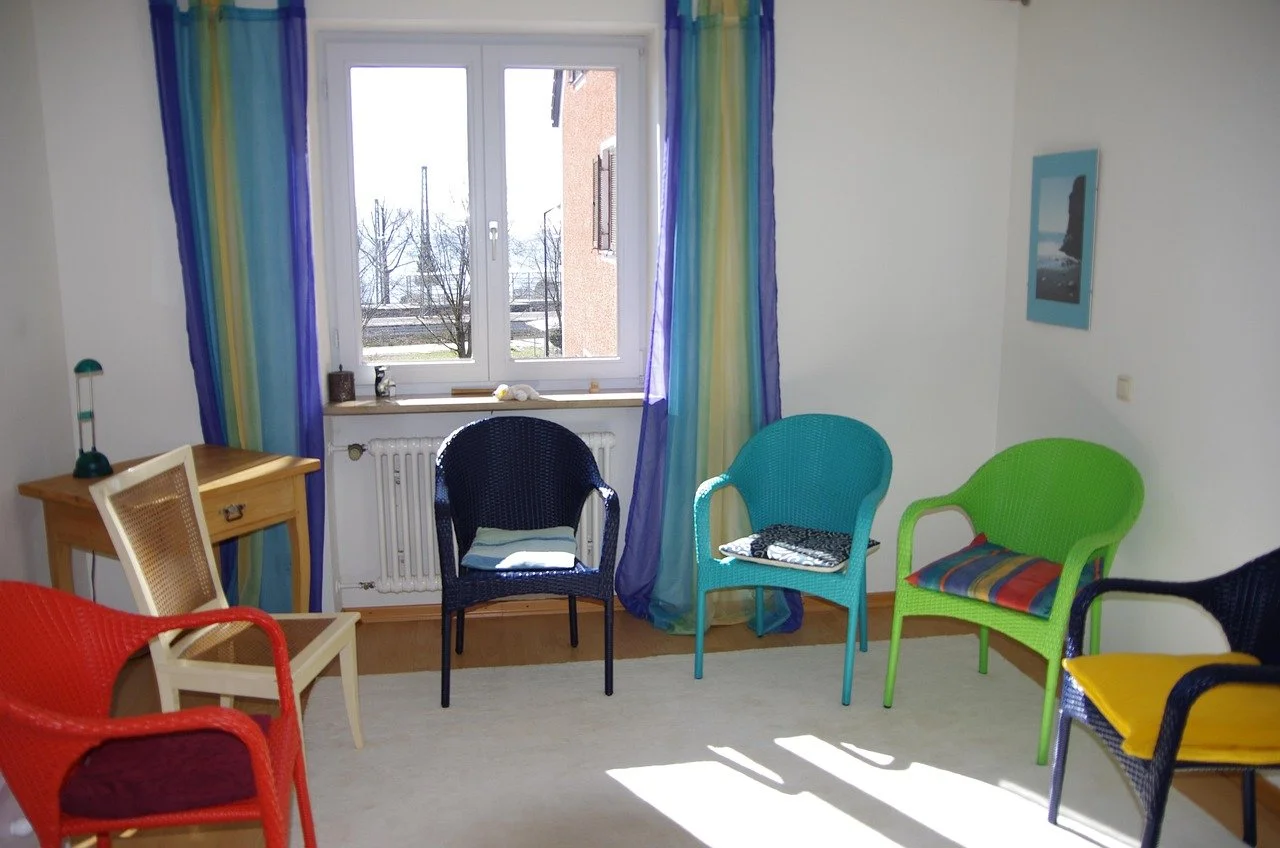Sign Up For Our Newsletter
BLOG
The Next Chapter
A blog by Dunham House
Getting Back to Work After Addiction Recovery: Resume Strategies and Employment Resources for Successful Job Reintegration
Returning to work after addiction recovery is a powerful step toward rebuilding routine, purpose, and financial stability. This transition is possible with the right preparation. The key strategies involve effectively managing your resume—framing employment gaps as a resolved health matter, highlighting transferable skills like resilience and self-management, and considering a functional resume format that emphasizes your achievements. When approaching job interviews, preparation is essential: practice concise, confident responses about your time away, pivot quickly to your current readiness, and remember that qualities like accountability and determination gained in recovery are assets. Support is available through specialized job boards, peer networks, and community job reintegration programs in Canada and Quebec to help you build a sustainable career path.
Movement & Therapy: Partners in Recovery
An integrated approach is a coordinated, whole-person strategy that blends multiple therapeutic methods to match each person’s needs. It acknowledges that emotional difficulties and physical well-being are linked. At Dunham House, our approach for addiction rehabilitation includes movement-based practices and other restorative modalities. For co-occurring mental health challenges, we collaborate with specialized mental health partners. By addressing mental and bodily symptoms together, this integrated care aims to strengthen resilience and support sustainable recovery.
Hold Your Resolution. Find Recovery.
Most sobriety resolutions fail by February—not from weak willpower, but from missing structure and unaddressed mental health challenges. Dual diagnosis treatment offers a better path by treating substance use and mental health conditions together through coordinated, evidence-based care.
Dunham House provides English-language integrated treatment in Quebec with residential and outpatient options tailored to dual diagnosis needs. Our programs combine proven therapies, individualized plans, and a peaceful 85-acre campus setting.
If past attempts haven't worked, the issue isn't you—it's the approach. Learn how integrated care creates sustainable recovery.
Dual Diagnosis Treatment in Quebec: Integrated Mental Health and Addiction Care in English
Discover how dual diagnosis treatment addresses mental health and addiction together. English residential care in Quebec for lasting recovery in 2026
Navigating the Holidays with Dual Diagnosis: Practical Strategies for Recovery
Managing Holiday Stress and Cravings
Practical techniques turn coping strategies into short, repeatable actions that lower cravings and protect recovery when you're under pressure. Urge surfing helps you notice cravings as passing sensations while using steady breathing and grounding to let them pass. Practiced boundary scripts and agreed exit plans make it easier to leave difficult situations calmly. Quick distractions like calling a support person, taking a ten-minute walk, or sipping water while focusing on your breath can reduce urge intensity and buy time for clearer choices.
Daily self-care and predictable routines create biological and psychological anchors that offset holiday unpredictability and support long-term recovery. Habits such as consistent sleep and wake times, nourishing meals, short morning movement, and brief mindfulness or journaling lower stress hormones and improve emotion regulation. Setting realistic expectations and accepting that not every moment will be joyful reduces shame and allows kinder self-management. Together, these practices create an internal steadiness that makes it less likely temporary stressors will trigger relapse.
Anxiety Relief in Five Minutes: Evidence-Based Techniques That Work
Understanding How Quick Anxiety Techniques Work
Anxiety often starts with a perceived threat that turns on the sympathetic nervous system. Heart rate rises, breathing becomes shallow, muscles tense, and stress hormones like adrenaline and cortisol are released. This state narrows attention toward threat-related thoughts, which then amplify bodily sensations and create a feedback loop.
Brief techniques work by engaging the parasympathetic system, slowing respiration, and refocusing attention. These steps together reduce arousal and open space for clearer thinking. Short exercises combine two key mechanisms: physiological down-regulation (slower breathing, reduced heart rate) and attentional shift (grounding or cognitive reframing) that stops the escalation of threat-focused thinking.
For example, two minutes of paced diaphragmatic breathing lowers breath rate and increases vagal input, while a two to three minute grounding scan redirects attention from internal alarms to neutral or calming sensory data. These brief practices do not remove underlying vulnerability, but they downshift arousal enough to allow problem-solving and longer-term coping. In practice, a quick routine can move you from overwhelmed to functional and help you decide whether a longer practice or professional support is needed.
How Exercise and Nutrition Support Mental Health and Recovery from Addiction
The Science Behind Movement and Mood
When Sarah walked into her therapist's office six months into recovery, she described something unexpected. The constant mental fog that had plagued her early sobriety was lifting. Her cravings, while still present, no longer felt like emergencies. She was sleeping through the night for the first time in years.
The change hadn't come from a new medication or breakthrough therapy session. It started with a daily walk around her neighborhood.
What Sarah experienced reflects something neuroscientists have been documenting for decades: exercise fundamentally changes the recovering brain. When you move your body, you're not just burning calories or building muscle—you're triggering a cascade of chemical events that directly support healing from addiction.
During physical activity, your brain releases endorphins, those natural painkillers that create feelings of well-being and calm. But the benefits run deeper than a temporary mood boost. Regular exercise increases brain-derived neurotrophic factor, a protein that acts like fertilizer for neural connections. This matters enormously in recovery because addiction often damages the brain's ability to adapt, learn, and form new patterns. BDNF helps rebuild that capacity.
Perhaps most critically, exercise recalibrates your stress response system. The same system that once drove you toward substances to cope with overwhelming feelings gradually becomes less reactive. Everyday stressors stop feeling like emergencies. You develop space between trigger and response—space where different choices become possible.
Beyond Willpower: The Cognitive Tools That Build Real Recovery
eyond Willpower: Find Lasting Addiction Recovery with Integrated Dual-Diagnosis TreatmentStop relying on willpower alone for addiction recovery. Our comprehensive guide explains why lasting change requires practical coping skills and evidence-based methods. Discover the power of integrated dual-diagnosis treatment that combines CBT, DBT, and experiential therapies like Equine-Assisted Learning (EAL). Learn how structured programs address co-occurring mental health challenges to build strong, sustainable recovery. Read more to find the best pathway for deep healing and relapse prevention.
5 Often‑Missed Signs of Addiction Families Commonly Overlook — How to Recognize Hidden Behavioural, Physical and Emotional Changes
Behavioural changes can show up long before major medical issues, and they’re often dismissed as personality shifts. Substances alter reward, impulse control and social priorities, and those shifts show up at work, in relationships and in motivation. Recognizing patterns early lets families document what’s happening and prepare an evidence-based response. Below are subtle behavioural indicators that are frequently missed.
Depression and Addiction: Understanding Dual Diagnosis and Effective Treatment Options
Dual diagnosis - often called co-occurring disorders - describes when a person has both a substance use disorder and a mental health disorder (for example, major depressive disorder) at the same time. Understanding how these conditions interact is an important step toward lasting recovery. This article explains the ways depression and addiction influence one another, why integrated treatment improves outcomes, and what practical steps patients, families, and referral sources can take to find coordinated care.
How the End of Daylight Saving Time Can Impact Your Recovery Journey
How the End of Daylight Saving Time Can Impact Your Recovery Journey
That one-hour shift when clocks fall back might seem minor, but for those in recovery from substance use disorders, it can trigger a cascade of challenges. Sleep disruption, darker evenings, and the approaching holiday season converge to create a vulnerable period where cravings intensify and coping skills feel harder to access. This isn't just about feeling groggy for a few days. The end of Daylight Saving Time affects the brain chemicals that regulate mood, impulse control, and decision-making, all critical factors in maintaining sobriety. Understanding why this seasonal transition matters and knowing practical strategies to protect your recovery can make the difference between staying on track and facing setbacks. From prioritizing sleep schedules and strategic light exposure to strengthening your support network and preparing for holiday triggers, discover evidence-based approaches to navigate this challenging time and emerge stronger on the other side.
What Are the Key Factors Contributing to Homelessness and How Can They Be Addressed?
Homelessness is a complex and urgent social issue shaped by the intersection of mental illness, addiction, poverty, trauma, and systemic policy gaps. Many individuals lose stable housing due to untreated mental health conditions or substance use disorders that disrupt daily living, employment, and relationships. Poverty and lack of affordable housing further increase vulnerability, especially when unexpected job loss or inadequate benefits make it impossible to cover rising rents. Experiences of trauma and domestic violence push people into homelessness and complicate their ability to find stable, supportive environments where recovery is possible. Systemic challenges—like fragmented services and underfunded supports—mean that individuals often fall through the cracks, with recurring cycles of crisis and temporary shelter. Addressing the root causes of homelessness requires integrated responses that include early mental health and addiction treatment, trauma-informed care, housing-first strategies, and coordinated community supports. By understanding these factors, we can advocate for evidence-based programs and policies that foster resilience, promote recovery, and ensure access to safe, permanent housing for all.
Navigating Persistent Discomfort: Key Factors and Integrated Care
Persistent discomfort—lasting more than three months—isn’t simply “pain that won’t go away.” It results from a dynamic blend of ongoing physical changes and emotional influences, often trapping individuals in a cycle that restricts activity, disrupts sleep, and impacts mood. Effective recovery requires understanding and treating both sides of the equation: nerve damage, inflammation, joint degeneration, anxiety, depression, and past trauma all combine to shape the daily pain experience.
This guide examines the origins of chronic pain, detailing how medical causes (like nerve injury, inflammation, or musculoskeletal degeneration) and psychological factors (such as stress, anxiety, or trauma) fuel ongoing discomfort. Differentiating neuropathic (nerve-based) and nociceptive (tissue-based) pain clarifies treatment paths—from nerve-targeted medications and anti-inflammatories to rehabilitation and psychological therapy. Recognizing lifestyle risks, like inactivity, poor sleep, or repetitive strain, allows for practical prevention strategies and holistic recovery.
A crucial focus is the powerful interaction between pain, mental health, and substance use. Chronic pain frequently increases the risk for depression and anxiety, while attempts to self-medicate can result in substance misuse. Integrated care—addressing dual diagnoses with psychotherapy, medical management, and harm-reduction—provides the strongest outcomes.
Expert Insights: How Dunham House Helps Clients Overcome Addiction Challenges.
When your mind feels overwhelmed in sobriety, it’s not a personal failing—it’s a sign you need support, not more pressure. At Dunham House, we understand that emotional distress like sadness, anxiety, or numbness can quickly threaten recovery, especially for those facing dual diagnosis. Often, the instinct is to escape these feelings, whether by avoiding them or returning to substances, but this only deepens the cycle of distress.
Our clinical team sees unhealthy coping as a common hurdle. Whether it’s using substances, zoning out, or compulsive behaviors, these habits offer only temporary relief while reinforcing the very patterns that drive anxiety, depression, and addiction. That’s why our integrated treatment combines the latest therapeutic approaches—CBT, DBT, medication management, and trauma-informed care—to help you name, manage, and move through emotions in a healthier way.
At Dunham House, we equip clients with evidence-based skills: pausing to identify emotions, grounding with your senses, practicing mindful breathing, and choosing actions in line with your values. These tools, along with compassionate therapy, peer support, and a safe inpatient setting, help break the cycle of shame and isolation. Recovery is possible—and with the right support, you can move from feeling overwhelmed to truly managing your mental health and building a lasting, meaningful sober life.
Your Essential Guide to Navigating Thanksgiving in Recovery
Thanksgiving can be one of the most challenging times for individuals in recovery. The three-day October long weekend concentrates family gatherings, increases exposure to alcohol, and intensifies emotional triggers—all while seasonal changes affect mood and energy levels. But with the right preparation, you can navigate this holiday sober and strong.
Your Thanksgiving recovery toolkit should include more than just willpower. From non-alcoholic beverages that honor seasonal traditions to a clear exit strategy for overwhelming gatherings, having tangible supports in place makes all the difference. A sober buddy, gratitude journal, self-care essentials, and a list of crisis contacts aren't signs of weakness—they're smart planning that protects your sobriety when triggers arise.
The 8-Year Wait: How Mental Health Stigma Delays Help-Seeking and Recovery
The 8-Year Wait: Why Stigma Delays Recovery
People wait an average of eight years between first experiencing mental health or addiction symptoms and seeking treatment. Eight years of unnecessary suffering.
Why? Stigma. Fear of judgment. Shame. Worry about what others will think.
The cost is real: worsening symptoms, damaged relationships, preventable crises.
At Dunham House, we've created a stigma-free environment for dual-diagnosis treatment. No judgment. Just compassionate, integrated care for mental health and addiction.
Recovery begins when we replace shame with support.
Don't wait eight more years. Contact Dunham House today.
Addressing the Unique Path: Women's Journey Through Addiction and Recovery
Women's addiction treatment programs are vital for addressing the distinct paths women take to substance use disorders and cultivating enduring sobriety. This guide delves into the gender-specific biological, psychological, and social factors that shape how addiction manifests in women. It explores common co-occurring mental health conditions, emphasizes the importance of trauma-informed care, identifies obstacles to treatment, and highlights the advantages of women-only recovery settings. The specific impacts of opioids, alcohol, and stimulants on women are examined, illustrating how Dunham House integrates gender-specific and trauma-informed support for better outcomes—encouraging both admissions and donations.
Unlocking Recovery: How Exercise Elevates Dual Diagnosis Treatment and Mental Wellness
Discover how integrating exercise into dual diagnosis treatment at Dunham House can accelerate recovery, boost mental wellness, and support long-term sobriety. Explore the latest evidence on fitness routines for addiction and mental health, plus expert tips on making movement a cornerstone of your healing journey.
People Pleasing and Addiction: Understanding, Signs, and Recovery Strategies
The Hidden Connection: How People Pleasing Fuels Substance Abuse
People pleasing behaviors significantly increase the risk of developing substance use disorders, with research revealing that individuals exhibiting excessive accommodation face 1.4 to 1.8 times higher odds of substance abuse. The clinical evidence is compelling: 60-80% of individuals with substance-using family members display codependent behaviors, and treatment centers report that 40-60% of clients entering addiction treatment exhibit significant people pleasing patterns.
Yeshaia Blakeney, co-founder of Recover Integrity addiction treatment program, describes the pattern he observes: "A lot of people that you find coming into recovery have felt that they've been living for the world and they don't really get theirs. The metaphor for me is like, I do everything I'm supposed to do during the day [for others] and at night, I hide in the closet and drink vodka and smoke meth... that's for me, the rest of its for the world."
This connection emerges through emotion dysregulation, social anxiety self-medication, and boundary dysfunction—creating a perfect storm where substances become the private refuge from public performance.
September is National Recovery Month: Celebrating Recovery and Mental Health
National Recovery Month: Celebrating Progress and Building Hope
National Recovery Month, observed every September, is dedicated to promoting and supporting evidence-based treatment and recovery practices. Through events, education, and community involvement, it fosters hope and works to dismantle social stigma. This month-long initiative emphasizes the power of peer support and professional resources to improve outcomes for individuals and families navigating substance use disorders and mental health challenges.




















